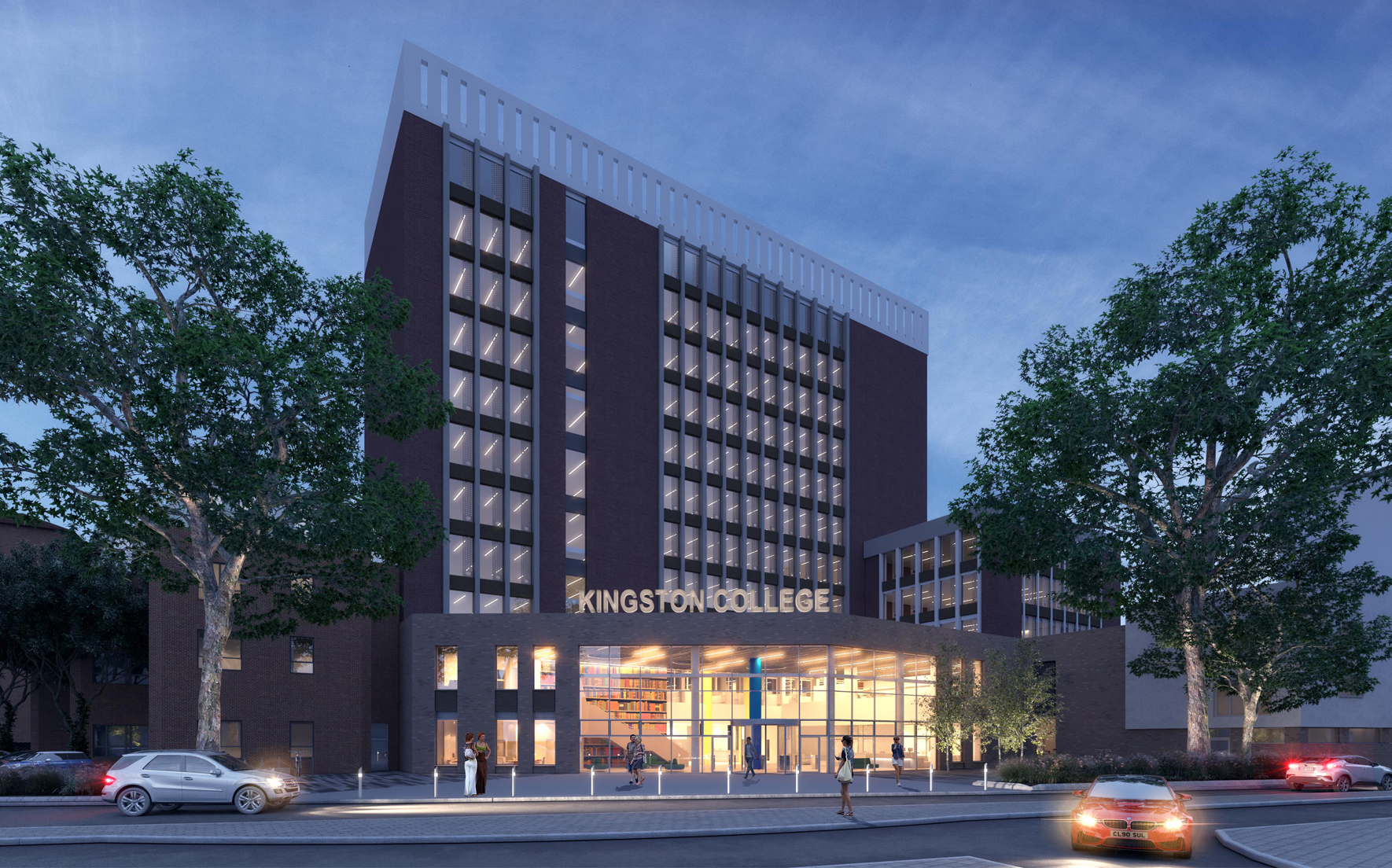Kingston University
Your guide to courses, accommodation and what it is like to study at Kingston University. REQUEST INFORMATION


UG 12797
PG 6152



Six steps to Kingston University
Our method to your success
FREE CONSULTATION MEETING
REPORT & INSTITUTION SHORTLIST
APPLY & RECEIVE AN OFFER
WOO HOO! YOUR OFFER IS ACCEPTED
ARRIVAL & POST ARRIVAL SUPPORT
WE ARE WITH YOU EVERY STEP OF THE WAY
LOCATION:
Kingston also has strong transport links for travel beyond London. Kingston has 2 mainline train stations, a network of bus routes, and major motorways close by. And if you're travelling by air, both Gatwick and Heathrow international airports are easily accessible from Kingston by both road and public transport.
REQUEST INFORMATION..

Request Information - University Courses
HISTORY:
Kingston University has roots going back more than 120 years.The University was founded as Kingston Technical Institute in 1899, offering courses ranging from Chemistry, Electric Wiring and Building Construction to Nursing, Dressmaking and Clay Modelling. In 1917 Gipsy Hill College for teacher training opened and in 1930 the Kingston School of Art separated from the Technical Institute, later to become Kingston College of Art in 1945.
In 1946 Gipsy Hill College moved to Kingston Hill and in 1951, the first Penryhn Road campus buildings opened.
In 1957 the Ministry of Education recognises Kingston as a Regional College of Technology.
In 1970, the College of Technology and the College of Art merge to form Kingston Polytechnic; it offered 34 major courses, 17 of which at degree level.
In 1975, Gipsy Hill College merges with Kingston PolytechnicKingston Polytechnic becomes Kingston University in 1992 and opened Roehampton Vale campus in 1993 and acquired Dorich House in 1995.
LOCATION:
The University is located across four teaching campuses, in and around Kingston upon Thames. It’s a lively, student-friendly riverside town neighbouring Hampton Court Palace and two royal parks. Kingston is also on the doorstep of central London, just a short train ride.Each of Kingston's four campuses has their own unique atmosphere created by the students who live and study there, and the staff who work there.The four campuses are:
· Kingston Hill
· Kingston School of Art, Knights Park
· Penrhyn Road
· Roehampton Vale
RANKING:
Kingston is ranked between 801-1,000th in the Times Higher Education World rankings.
INTERNATIONAL:
Kingston has approximately 4,995 non-UK students coming from 140+ countries, ranging from Afghanistan to Zimbabwe (figures from December 2020).
SIZE:
Kingston has approximately 18,950 students in total; 12,797 undergraduate/foundation level students and 6,152 postgraduate students (as of 1 December 2020);
FACILITIES:
Kingston is investing £118.7 million in its campuses including the landmark Town House building and the major renovation project at Kingston School of Art.Town House
Town House is at the heart of the Penrhyn Road campus. Facilities inside the Town house include: a new library with over 1,000 study spaces, dynamic learning and social spaces, a covered courtyard, cafes, dance studios & roof top gardens.Knights Park campus
The major refurbishment at Kingston School of Art’s Knights Park campus has been designed to encourage interdisciplinary collaboration and deliver improved workshop and studio space while enhancing the environmental performance of the building.Campus facilities
Whether it’s Kingston Hill’s woodland trail or the riverside at Knights Park, each of Kingston's campuses has distinct features. Linked together by a free 'inter site' bus service, each campus has its own facilities and study environments. Kingston's campuses offer bars, restaurants, cafes and coffee shops to laundrettes, social spaces and on-site gyms.Tolworth Court sports groundThe Tolworth Court sports ground provides excellent facilities for outdoor sports including; football and rugby pitches, cricket squares and an artificial cricket wicket, netball and tennis courts, an American football pitch, lacrosse pitch and floodlit training areas. There is also a sports pavilion, a café and bar.
ACCOMMODATION:
Kingston's halls are located close to campus facilities, with easy access to Kingston town centre and central London. There are 2,047 rooms to choose from.
Halls costs start at £112* per week for a micro en-suite room.
*Please note prices are for 2021 entry.For 2022 halls of residence prices, please check:www.kingston.ac.uk/accommodation/halls-of residence
COST:
Kingston's international tuition fees start at £13,500 for full time undergraduate courses covering most class room based Business and Social science courses.
Laboratory based Science courses and Engineering course start at £15,000 and go up to £15,900 for Art and Design courses.
LIFE AT Kingston University
We have been helping overseas students gain entrance to Kingston University for a number of years now, progressing to high profile careers in the UK. Find out more about this school below.
Review
Coming Soon
 LOOKING FOR AN ONLINE COURSE?
Our team can help you find a relevant course for your study.
BOOK A CALL
LOOKING FOR AN ONLINE COURSE?
Our team can help you find a relevant course for your study.
BOOK A CALL
DOWNLOAD YOUR FREE GUIDE TO A QUALITY UK EDUCATION
Sign up to our free Newsletter and you'll get a free copy of our guide to accessing a UK education to help you navigate the entire process.
REQUEST INFORMATION..
Get free instant access to exclusive content and join our monthly email guide
We’re with you every step of the way and will keep you updated on the latest UK education news. Find out more about joining.
